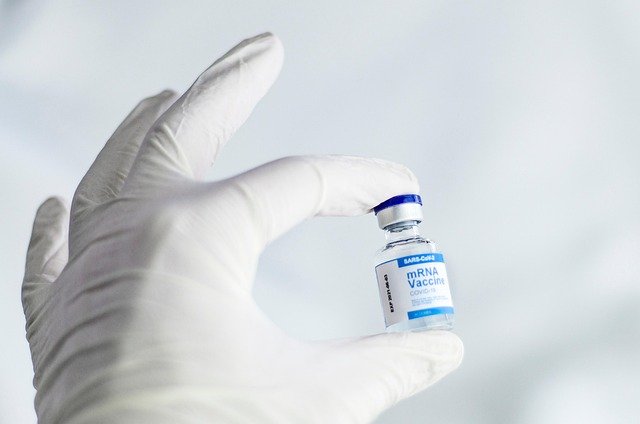Understanding Diabetes Clinical Trials: What They Are, Who Can Join, and Why They Matter
Diabetes affects millions of people worldwide, with researchers continuously searching for better treatments and potential cures. Clinical trials form the backbone of this research, providing the scientific evidence needed to develop new medications, devices, and care approaches. For those living with diabetes, understanding these trials can open doors to cutting-edge treatments while contributing to medical science. This article explores what diabetes clinical trials entail, their significance, who can participate, and how to get involved.

What Are Diabetes Clinical Trials?
Diabetes clinical trials are carefully designed research studies that evaluate the safety and effectiveness of new treatments, medications, devices, or approaches to managing diabetes. These structured investigations follow strict scientific protocols and are conducted in phases, each with specific objectives. Phase 1 trials typically involve a small group of participants to assess safety, while Phase 2 and 3 trials expand to larger groups to determine effectiveness and monitor side effects. Finally, Phase 4 trials occur after a treatment receives approval and enters the market, providing long-term safety data.
Clinical trials may focus on various aspects of diabetes care, including new insulin formulations, non-insulin medications, glucose monitoring technologies, lifestyle interventions, or even potential preventive measures. Every trial answers specific research questions while adhering to ethical standards and regulatory requirements designed to protect participants.
Why Clinical Trials Are Important for Diabetes Research
Clinical trials serve as the foundation for advancing diabetes care and treatment options. Without them, new medications couldn’t receive FDA approval, innovative management techniques would remain theoretical, and our understanding of diabetes would stagnate. These studies provide the scientific evidence necessary to determine which treatments work, how well they work, and for whom they work best.
Beyond developing new treatments, clinical trials help researchers understand diabetes more comprehensively. They reveal insights about disease progression, identify risk factors, and uncover potential complications. This expanding knowledge base informs healthcare providers’ recommendations, shapes public health policies, and improves standard care practices for all diabetes patients.
For individual participants, clinical trials often mean access to cutting-edge treatments years before they become widely available. Participants typically receive specialized care from diabetes experts and more comprehensive health monitoring than standard care provides. This intensive attention can lead to improved diabetes management and better health outcomes.
Who Can Participate in a Diabetes Clinical Trial?
Diabetes clinical trials need diverse participants to ensure treatments work effectively for everyone. Each trial has specific eligibility criteria based on factors such as:
-
Type of diabetes (Type 1, Type 2, gestational, etc.)
-
Duration of diabetes diagnosis
-
Current treatment regimen
-
Age range
-
Overall health status
-
A1C levels and other laboratory values
-
Presence of diabetes-related complications
-
Other medical conditions
Some trials seek participants with newly diagnosed diabetes, while others focus on those with long-standing disease. Certain studies specifically recruit people with particular complications like retinopathy or neuropathy. Other trials may target specific populations such as children, pregnant women, older adults, or particular ethnic groups that are underrepresented in research.
Contrary to common misconception, participating doesn’t necessarily require having exhausted all standard treatment options. Many trials compare new treatments to current standard care, requiring participants who are managing well on conventional therapies.
What to Expect if You Join a Trial
Participating in a diabetes clinical trial involves several stages, beginning with a screening process to determine eligibility. This screening typically includes reviewing your medical history, conducting physical examinations, and performing laboratory tests. Once enrolled, the actual trial experience varies widely based on the study design.
Most trials require regular visits to the research center for monitoring and data collection. These visits may include blood draws, physical examinations, adjustments to treatment protocols, and discussions about your experiences. Some studies also involve home monitoring, keeping detailed logs of blood glucose readings, medication adherence, diet, or activity levels.
Participants should understand they might receive a placebo (inactive treatment) rather than the experimental therapy in some trials. This placebo-controlled design is essential for determining whether improvements result from the new treatment or other factors. Additionally, many trials use a “blinded” approach, meaning participants (and sometimes researchers) don’t know whether they’re receiving the experimental treatment or placebo until the study concludes.
The duration of participation varies significantly—some trials last weeks, while others continue for years. Throughout your involvement, the research team prioritizes your safety and wellbeing, with protocols in place to address adverse events or concerns.
How to Find and Enroll in a Diabetes Clinical Trial
Finding appropriate diabetes clinical trials has become increasingly accessible. Several online resources serve as centralized databases of active studies:
-
ClinicalTrials.gov: This comprehensive government database allows searching by condition, location, and other criteria.
-
JDRF Clinical Trials Connection: Focuses specifically on Type 1 diabetes research opportunities.
-
American Diabetes Association’s Clinical Trials Connection: Provides information about diabetes studies across the country.
Additionally, academic medical centers, diabetes specialty clinics, and endocrinologists often participate in clinical research and can connect patients with suitable trials. Patient advocacy organizations also share information about research opportunities through newsletters and websites.
When you identify a potential trial, contact the study coordinator listed in the description. This initial conversation typically includes discussing the purpose of the study, determining potential eligibility, and addressing questions about participation. If you’re interested in proceeding, the coordinator will schedule a formal screening visit where they’ll fully explain the study procedures, potential risks and benefits, and participant responsibilities.
Before officially enrolling, you’ll go through an informed consent process, during which researchers explain all aspects of the study in detail. This critical step ensures you understand what participation entails before making your decision.
Conclusion
Diabetes clinical trials represent a vital pathway to improving care for millions affected by this condition. They offer participants access to innovative treatments while contributing to scientific knowledge that benefits the broader diabetes community. While participation requires commitment and involves certain risks, these studies incorporate extensive safeguards to protect volunteers’ wellbeing. For those interested in advancing diabetes research while potentially accessing cutting-edge care, clinical trials offer a meaningful opportunity to make a difference.
This article is for informational purposes only and should not be considered medical advice. Please consult a qualified healthcare professional for personalized guidance and treatment.




